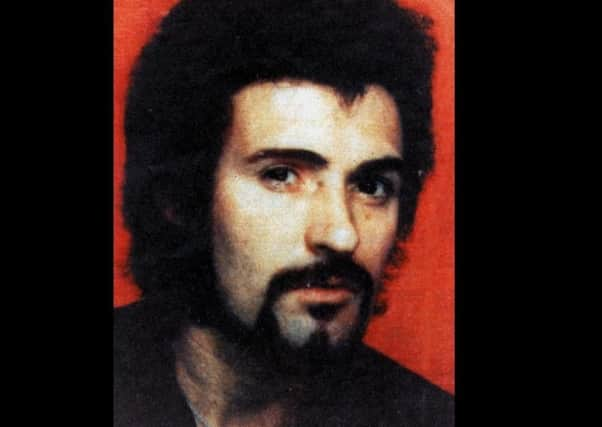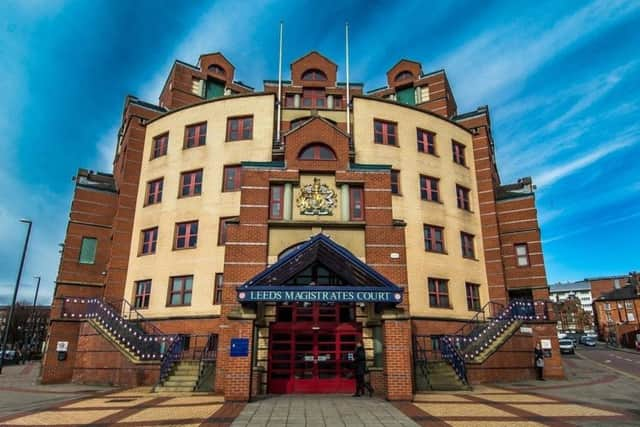Richard Jones: Time to open up reporting of courts and take justice out of the shadows


It’s a pity that our justice system often takes place somewhat in the shadows. A morning sitting in the public gallery of your local court will tell you more about your area than you could have imagined. The mother stealing from the supermarket to feed her children is followed by the embarrassed businessman caught drink driving on his way home from the golf club.
You might also be impressed at the sheer number of people involved in each hearing; judges or magistrates, prosecution and defence lawyers, rehabilitation and probation. The futures of a wide range of individuals are decided each day, often with a great deal of skill and humanity.
Advertisement
Hide AdAdvertisement
Hide AdBut those shadows have lengthened in recent years, with two huge swathes of cuts to the courts service. Smaller ones have closed, from Halifax to Selby, Goole to Dewsbury. Defendants and witnesses must travel further, often using unreliable public transport, to access justice.


With our local courts now not so local, we all rely even more on the media to keep us informed about what is going on in those that remain. But with newspapers in particular having faced financial challenges of their own, that task has become tougher.
I have been researching how we can try to maintain and even expand scrutiny of the courts. In my view it’s time to make the lives of court reporters just a little bit easier, to improve the transparency of our justice system.
This newspaper has already argued that electronic transcripts of court proceedings should be created routinely, so important cases don’t slip by without being brought to the public’s attention.
Advertisement
Hide AdAdvertisement
Hide AdA good first step towards that would be to allow the publication of judges’ sentencing remarks and the opening statements of barristers. If that were to become an everyday practice, it would be easier for the media to cover more cases.
Many of the restrictions facing court journalists date from long ago and should be revisited. The Contempt of Court Act, introduced in relative haste amid outrage at media coverage of the arrest of the Yorkshire Ripper in 1981, imposed some conditions that are now outdated.
For example, audio taping within courts was banned, mainly out of concern that clunky old cassette decks would disrupt proceedings. With reporters now carrying silent recorders in their pockets in the form of smartphones, those old arguments no longer apply.
You have to go even further into the past, to 1925 no less, to find the passage of the law which prohibits the taking of photographs anywhere within the precincts of a court building. This leads to a bizarre spectacle where reporters are obliged to sneak past defendants in corridors and photograph them on the steps of the court using their phones, with an ever present risk the recently-convicted criminal may take a dim view of their actions.
Advertisement
Hide AdAdvertisement
Hide AdAllowing limited photography within the courtroom ought to be considered, giving the media the opportunity to safely gather the kind of high-quality image that online coverage demands.
Then there’s video cameras. Such filming has taken place for some time in the Supreme Court and the Court of Appeal, while an unbroadcast pilot scheme has been successfully completed in a series of crown courts, including Leeds. Those schemes have demonstrated that recording can be carried out unobtrusively. It should be possible to film judges’ sentencing remarks in our courts, too.
There is much more that could be done. Always giving newspaper reporters timely access to evidence as it is presented in court, a courtesy often extended by the Crown Prosecution Service only when TV coverage is assured, would allow journalists to give us a fuller picture of significant trials.
Reporters must also get guaranteed facilities – a Press bench in every court, a room in each court complex so they don’t have to work in corridors, reliable wifi, a consistent list of the names and addresses of defendants – all to help make the vital role of reporting our courts a less marginal activity than it has already become. Plenty of people in the Government and the law talk a good game about the importance of open justice. It’s time they helped the media to make sure those shadows don’t become total darkness.
Richard Jones is a senior lecturer in Journalism at the University of Huddersfield. He can be contacted on Twitter via @rlwjones.